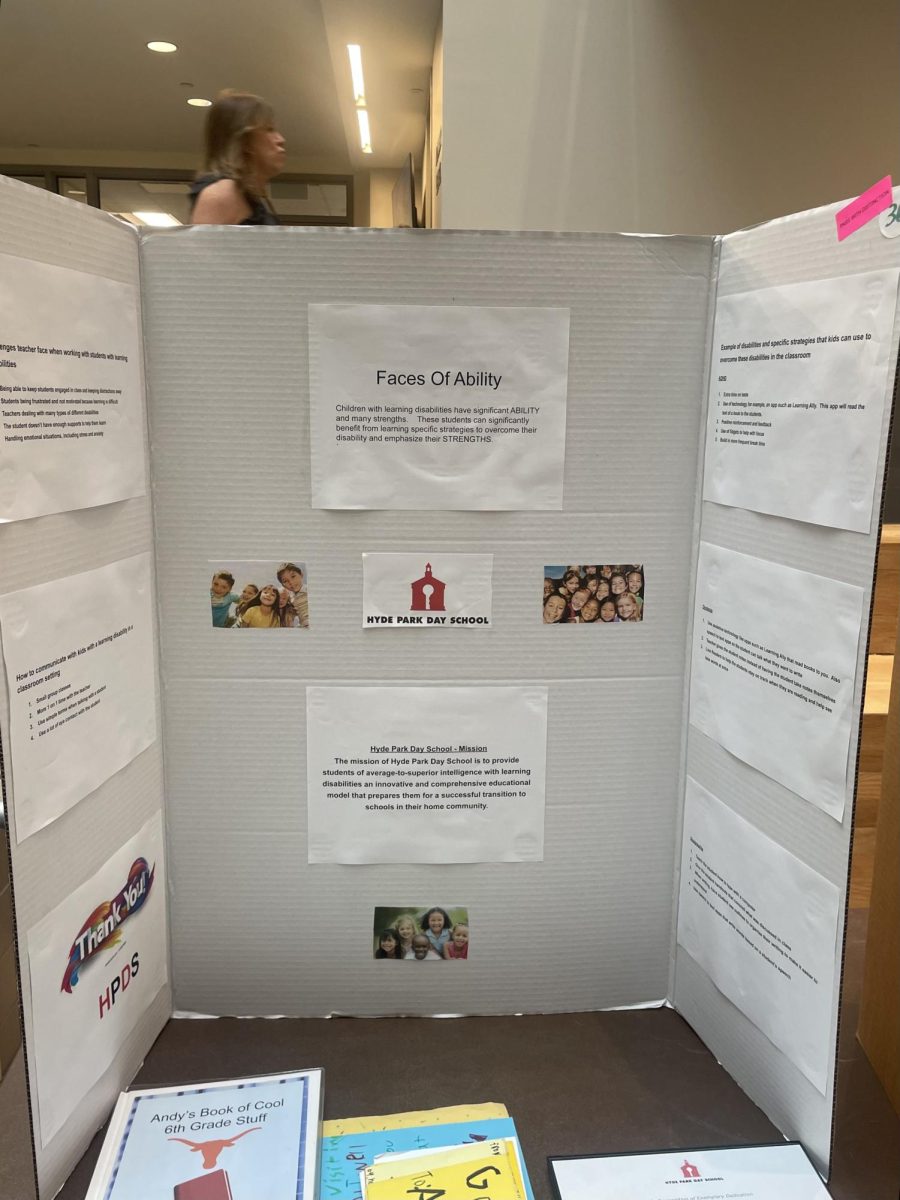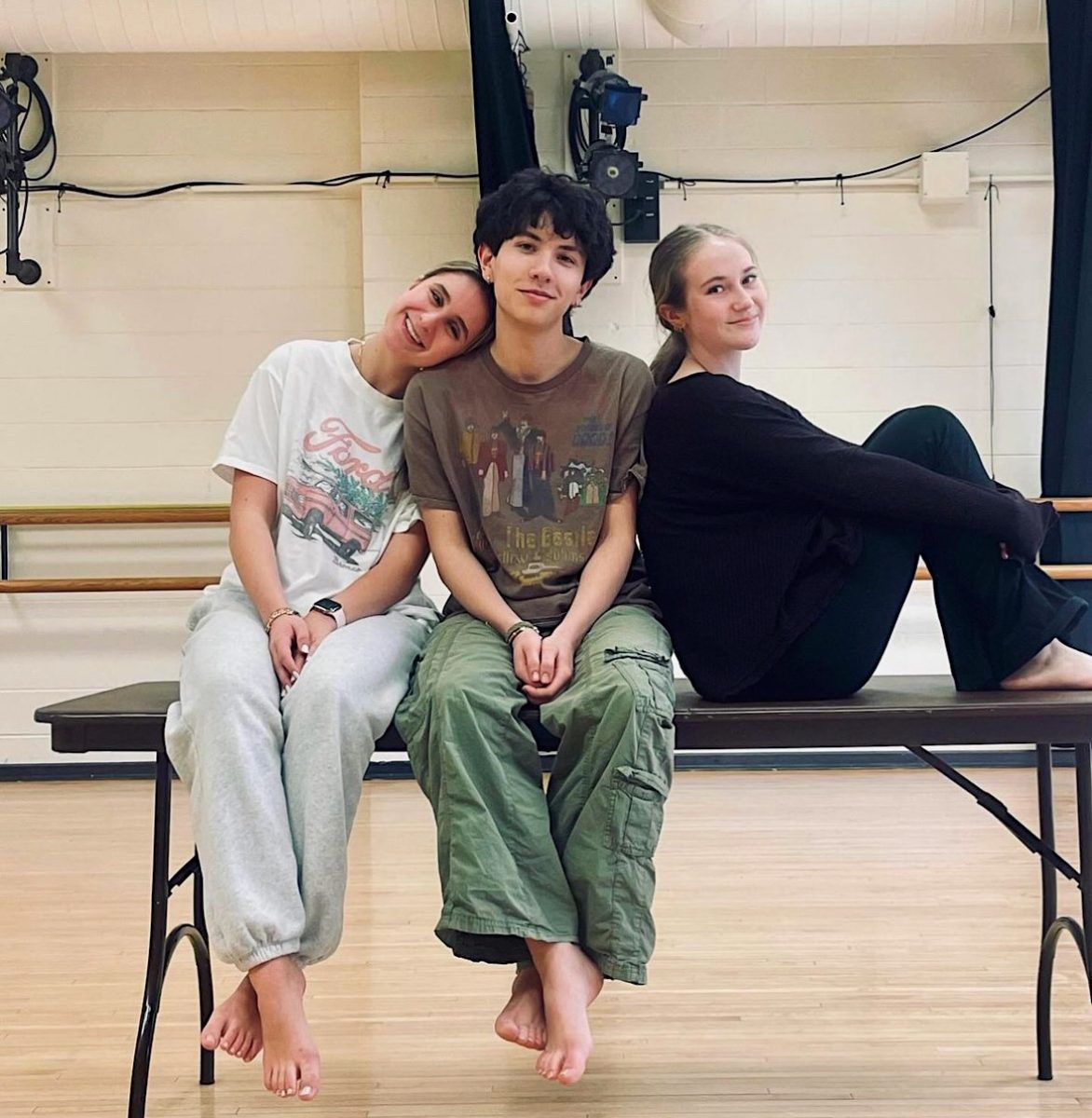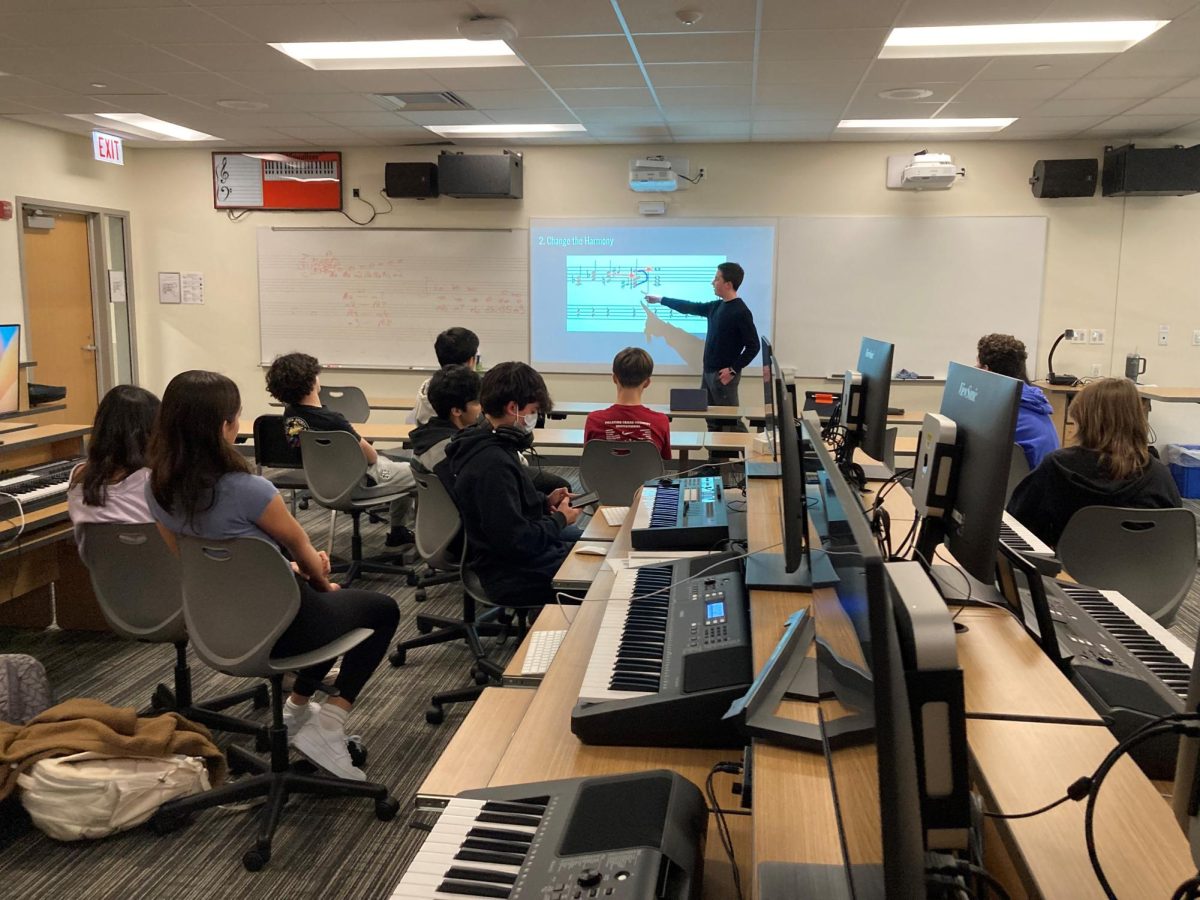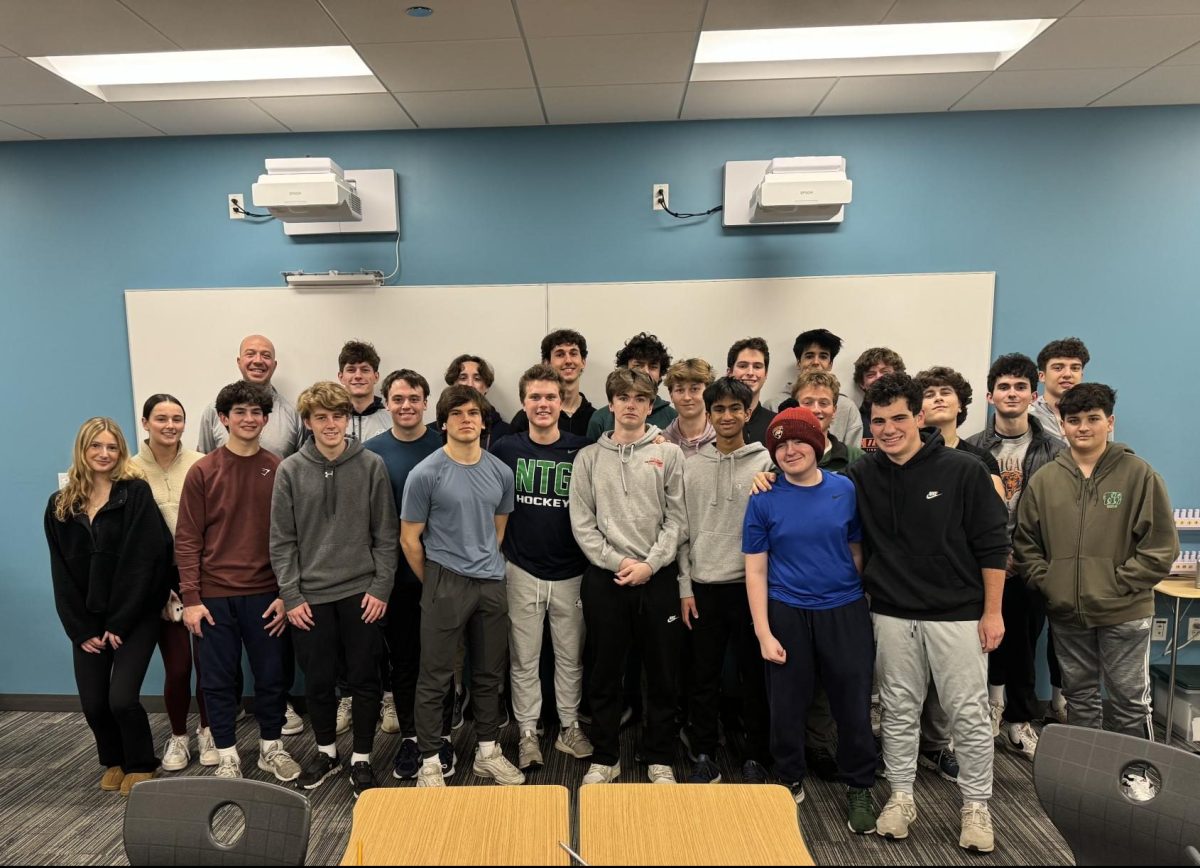In front of a crowd of about 20 New Trier students, a Buddhist monk named Gen Kelsang Dorje took the stage. The bald headed man wore a maroon and golden robe and thin-rimmed glasses. His delicate frame, a result of fasting and refraining from the indulgence of food, exuded serenity.
Every Wednesday, New Trier’s Out of the Box club hosts a guest after school. On November 6, they welcomed Dorje, who has taught meditation and preached the life lessons of Buddhism for a living.
One topic of discussion was ego: self-concern or interest that solely lies in one’s own image and welfare. Dorje says that when we “act in selfish intention, we cause harm.” According to Buddhist principles, enlightenment –
the awakening to ultimate truth by which man is freed from the endless cycle of personal reincarnations to which all men are otherwise subject (dictionary.com) – is attained when the mind is liberated from all negativity. This is not possible when one constantly compares his or her life to others, whether it’s from jealously, superiority, or simply because that is the only way one can gauge progress.
A former psychologist, Dorje continued to articulate his wisdom while responding to student inquiries. At one point, a student asked Dorje how to move forward from past failures and struggles. Some students shifted in their seats; the question was certainly one that others were holding on to. Dorje explained that it is crucial to be detached from your past. If a person allows the past to dictate future decisions and intentions, then that person will never be able to fully live in the present.
This mindset has a significant impact upon academic performance. For example, receiving a poor grade can make a student feel that he/she is not worthy or capable of receiving higher grades. Therefore, that student remains complacent; not motivated to do better. But students understand why they performed below expectations (such as lack of studying or not paying attention in class), then they can move forward without dwelling or overanalyzing the past results.
After his talk, Dorje led the group through a meditation exercise. The goal of meditation is to maintain alertness and positivity throughout a period of time, focusing on a concept formed from the teacher (in individual meditation, one directs the whole thought process by themselves). Dorje recommended focusing on breathing – going into and out of the lungs slowly – in order to divert attention away from stress and towards a soothing action. The lights in the room were all turned off except a set in the back. Dorje told his pupils to sit in their chairs in an upright position and relax their posture. Then, he instructed them to place their palms face up on the knees or thighs.
For about twenty minutes, the room was silent. Everyone’s eyes were closed and minds focused on internal matters concerning family and friends. As the meditation concluded, some students felt refreshed and clear-headed. Others reported drowsiness and were yawning – contrary to popular belief, meditation is not supposed to induce sleep. Spacing out or preparing to go to sleep is seen as shutting down your mind, not awakening it. This is why some of the lights in the room were left on.
The last few remarks were made, and the event ended at 5pm. Members of the Out of the Box club stayed after, asking for contact information. Dorje further elaborated his teachings in a sit-down interview with the New Trier News. One interesting point he made was that meditation does not always have to be formal. He said that “while waiting in line for lunch or sitting on a bus, you can reflect on the day’s events and whether you have been instilling your core values as of late.”
In addition, Dorje went into the specifics of living a life devoted to Buddhism. Essentially, there is not a particular process to convert to Buddhism; it’s an internal decision that is made on one’s own accord. Along the way, learning the teachings of the Buddha (from proverbs, stories, etc.) coupled with meditation will steer one on a path to enlightenment.
Ultimately, there is no being or ruler that a Buddhist must submit to or worship. The Dalai Lama is “often mistaken as the head of Buddhism [but]… there is no head of Buddhism,” according to Dorje. The most important wisdom comes from within, called real dharma. This wisdom is found within one’s own heart, and can be harnessed to make moral and ethical decisions.
Every day of the week aside from Saturday, Gen Kelsang Dorje hosts meditation classes at the Vajrayana Kadampa Buddhist Center (Wicker Park Annex) located at 2010 W. Pierce Ave. in Chicago. Anyone is welcome to attend these sessions.




































